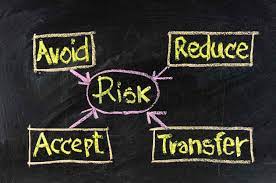Now Reading: Why Risk Attracts People: Understanding the Thrill of Uncertainty
-
01
Why Risk Attracts People: Understanding the Thrill of Uncertainty
Why Risk Attracts People: Understanding the Thrill of Uncertainty

Risk has a strange appeal. From adventure sports to business ventures, people are drawn to situations that challenge comfort and certainty. The thrill of taking calculated risks triggers excitement, tests courage, and offers a sense of achievement. In India’s Tier-2 cities, this attraction is visible in young entrepreneurs, hobbyists, and students who are willing to step beyond traditional paths to explore new opportunities.
The Psychology Behind Risk-Taking
Humans are wired to respond to challenge and uncertainty. Risk activates adrenaline and dopamine, creating a mix of excitement and reward. This psychological response makes risky activities feel stimulating, motivating people to test their limits and seek experiences that break routine.
Social and Cultural Influences
In smaller cities, social approval and recognition often reinforce risk-taking. Successfully navigating a challenging project, adventure activity, or business venture brings admiration and respect. Peer influence, storytelling, and social media amplify the perception that taking risks is courageous and rewarding.
Practical and Personal Motivations
Risk-taking is not just about thrill; it can lead to growth and learning. Entrepreneurs start businesses despite uncertainties, students try unconventional careers, and adventure enthusiasts tackle extreme sports to build confidence. Each successful experience reinforces the value of stepping beyond comfort zones.
Balancing Risk with Safety
While risk has its appeal, managing it wisely is essential. Understanding potential consequences, planning, and using safety measures allows individuals to benefit from risk without exposing themselves to unnecessary harm. Awareness is especially important in Tier-2 cities where resources for risk management may be limited.
Conclusion
The attraction to risk is a blend of psychology, culture, and personal ambition. For people in India’s Tier-2 cities, calculated risk-taking encourages growth, adventure, and social recognition. When approached thoughtfully, risk becomes a tool for learning, achievement, and personal transformation rather than merely a source of danger.
























